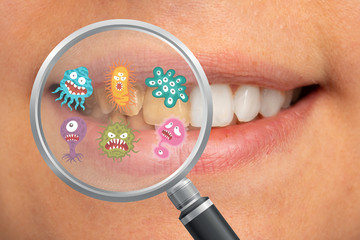Dental (or tooth) pain is the most common reason for seeking treatment from a dentist. Pain can also occur following an extraction (when a tooth is pulled), injury, or decay in teeth. Tooth pain often radiates to the head and is concentrated in the jaw, so symptoms often look like toothache. Painful teeth can also result from underlying health conditions, such as gingivitis or periodontal disease.
If tooth pain persists beyond a couple of weeks, it is best to schedule an appointment with Dentists in Dalton GA. Root canal therapy is performed by a dentist when the tooth’s pulp tissue has died, so there is nothing to hold it back in the mouth. Root canal therapy removes infected tissue and bacteria that may be causing toothaches. The process does not always eradicate the pain. Patients may have some tooth pain for several months, even years. However, most people who undergo this procedure feel better in the long run and do not suffer any negative effects.
One of the main reasons people visit a dentist is that they have tooth pain that they are unsure of due to an underlying condition or problem. People often confuse tooth pain caused by tooth decay or gum disease with a “pins and needles” feeling. These “pins and needles” feelings can be confused with different muscle or skeletal problems and can lead to further complications. In most cases, however, tooth pain or sensitivity does not require immediate medical attention. It is important to allow a dentist to perform a thorough examination to determine what causes the tooth pain or sensitivity.
Sometimes, tooth pain can be helped by inhaling steam before going to bed. Smoking cigarettes or using tobacco products can irritate the sinuses and may cause sleep disorders such as snoring, which will irritate the sinuses. By quitting smoking and/or reducing the number of tobacco products consumed, a doctor may recommend that you seek help to relieve your tooth pain and possible sinus irritations.
Sometimes, tooth pain is caused by some injury to the teeth. This may include dental procedures that do not heal properly or injuries from playing sports or chewing hard items. If your dental professional suspects that you have been injured to the teeth, he or she will refer you to an orthodontist, a dentist that specializes in correcting teeth and their alignment. Orthodontists can perform several treatments to help alleviate the pain associated with this type of injury. Among these treatments include braces, appliances, x-rays, and other types of manipulatives.

Some people suffer from tooth pain that is caused by inflammation in the gums. Inflammation can occur when there is an infection in the gum or if the gums are irritated by something. For instance, if you scrape your finger and leave it embedded in a cut or tear on your hand, the blood can get stuck in the edges of the rim, resulting in inflammation. Brushing and using mouthwash can help to reduce the inflammation, but sometimes medications are needed. One common inflammatory disorder is called caries.
Tooth pain can be caused by either fungal infections, including staph, yeast, mold, bacteria, or a structural problem in the tooth structure. Left untreated, these causes can cause damage to your teeth and decrease your ability to chew your food correctly. To treat any of these cases, your dentist will likely prescribe an antibiotic, possibly an over-the-counter variety, to kill the infection and alleviate your symptoms. However, if it is determined that your teeth are in fact infected with one of these causes, he or she will likely recommend that you see a podiatrist, who will treat your condition with different kinds of treatments, including physical therapy and prescription pain medications.
If you suffer from severe tooth loss because of decay or tooth decay, your dentist may suggest having your crowns or dental implants replaced. While tooth loss is most commonly associated with poor oral hygiene and diabetes, both of which are fairly common among people suffering from any number of other chronic illnesses, tooth loss can also be a symptom of more serious diseases. Losing a tooth can severely limit your ability to eat properly and make going to the dentist and receiving treatment for those problems more complicated and painful. If you lose a tooth, you should immediately contact your dentist to ensure that the tooth is fully restored. If your tooth does not fully heal after your dentist has performed the necessary work, you should follow the directions provided by your dentist to heal the tooth fully.
